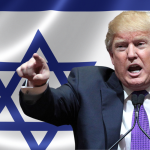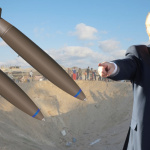REPORTS indicated that US President Donald Trump’s new tariffs on numerous economies took effect on Wednesday, including levies exceeding 100 percent on Chinese goods, significantly escalating a damaging global trade war.
Following the implementation of widespread 10 percent tariffs that had already destabilised the global economy, import rates to the US from countries like the EU and Japan increased further on Wednesday morning.
China, identified as Washington’s main economic competitor and a major trading partner, was most severely affected, with tariffs on its products since Trump’s return to the White House reaching 104 percent.
Trump, on Tuesday said that his administration was working on “tailored deals” with trade partners, and the White House announced it would prioritise allies such as Japan and South Korea.
His top trade official, Jamieson Greer, reportedly told the Senate that Argentina, Vietnam, and Israel were among those offering to reduce their tariffs. Trump also told fellow Republicans at a dinner that countries were eager to make deals.
However, Beijing had shown no indication of backing down, vowing to fight the trade war “to the end” and promising countermeasures to protect its interests. China’s retaliatory tariffs of 34 percent on US goods were expected to come into force on Thursday.
The US president believed his policy would revive America’s manufacturing sector by compelling companies to return to the United States. Nevertheless, many business experts and economists questioned the feasibility and speed of this, warning of increased inflation due to higher prices from the tariffs.
Trump had claimed on Tuesday that the US was collecting nearly $2 billion daily from tariffs.
He had initially introduced a 34 percent additional tariff on Chinese goods, but after China responded with its own equivalent tariff on American products, Trump added another 50 percent duty.
Including existing levies, the total tariff increase on Chinese goods during Trump’s second presidency amounted to 104 percent.
Trump had insisted that the decision rested with China, saying they wanted a deal but didn’t know how to initiate it. Late Tuesday, Trump also mentioned an upcoming major tariff on pharmaceuticals.
Separately, Canada announced that its tariffs on certain US auto imports would take effect on Wednesday.
Following substantial losses in global equity markets recently, Asian markets opened lower again on Wednesday, with significant drops in Hong Kong and Japan.
Currency markets also experienced volatility, with the South Korean won hitting its lowest point against the dollar since 2009 and the Chinese offshore yuan reaching a record low against the US dollar as China’s central bank reportedly weakened the yuan for the fifth consecutive day. Oil prices also fell sharply.
The European Union had attempted to ease tensions, with its chief, Ursula von der Leyen, cautioning against escalating the trade conflict in a call with Chinese Premier Li Qiang.
She emphasised the need for global economic stability and avoiding further escalation, according to an EU statement. The Chinese premier assured von der Leyen that his country was confident in maintaining sustained and healthy economic development.
The EU, which Trump had heavily criticised over its tariffs, might unveil its response next week to new 20 percent levies it faced.
In retaliation for US steel and aluminum tariffs, the EU reportedly planned tariffs of up to 25 percent on various American goods.
Wall Street’s major indices closed lower on Tuesday.
In a public display of disagreement over tariffs, a key Trump ally, Elon Musk, had described a senior White House trade advisor as incompetent, criticising his remarks about Musk’s Tesla company.
-BTS Media



